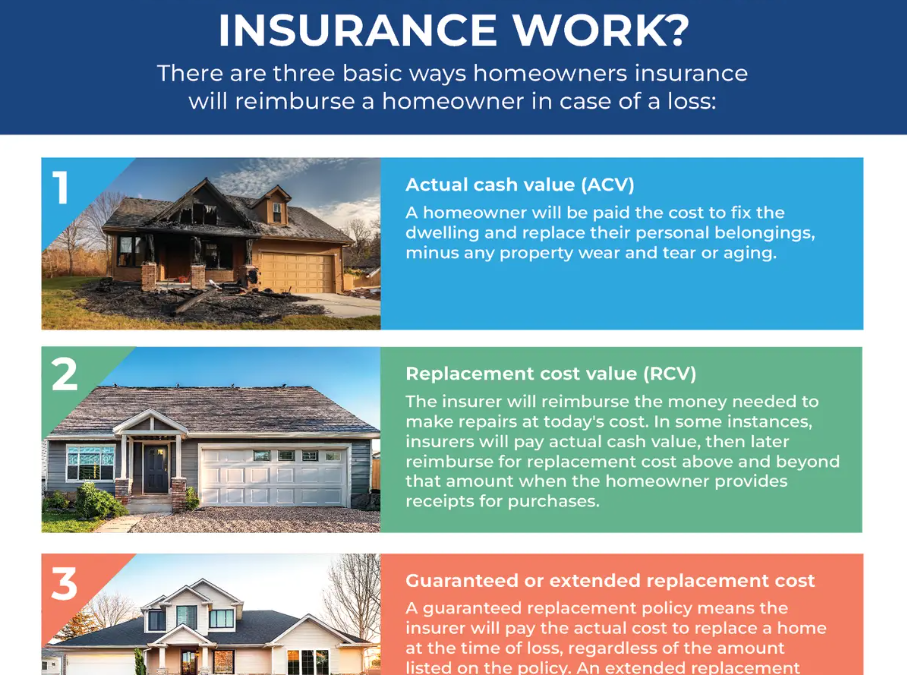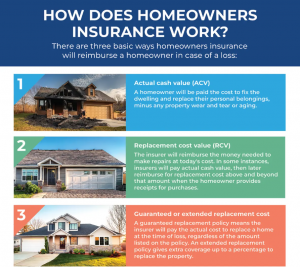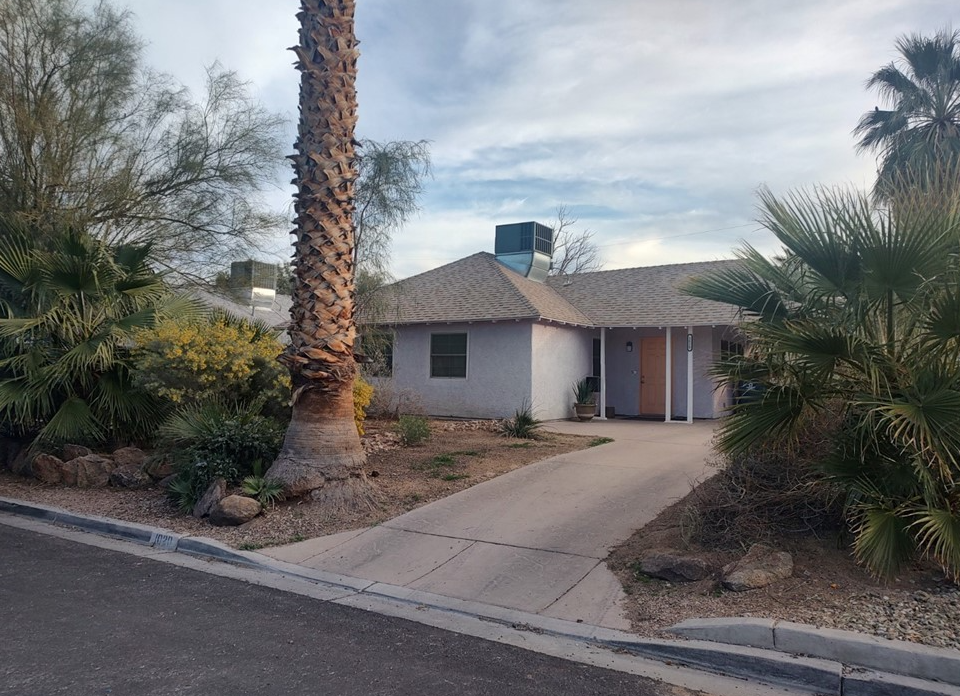Homeowners Insurance


 Quick Takeaways
Quick Takeaways
- Homeowners insurance is a “package policy”—this means it covers both actual, physical property and legal responsibility for injuries that happen while on that property.
- There are three common levels of coverage: actual cash value, replacement cost value, and guaranteed/extended replacement cost.
- Standard policies may have weather exceptions that do not cover flooding, earthquakes, or poor maintenance.
What Is Homeowners Insurance?
A homeowners insurance policy covers a homeowner for unexpected losses at their home or property. It can include provisions to repair or rebuild the property, replace assets within the home, cover accidents that happen to the homeowner or someone else on the property, or even pay for living expenses if a covered incident forces them to live elsewhere temporarily.
Is Homeowners Insurance Required?
Homeowners insurance is a crucial step in your client’s journey to home ownership. In fact, they may not be able to obtain a mortgage without it. While the mortgage lender may require a borrower to have a home insurance policy as long as they have a mortgage, if their mortgage is paid off, or if they’ve paid for the home outright, no laws require them to maintain insurance. However, because someone’s home and the items inside are likely their largest assets, insurance is one way to protect against a single storm or accident destroying it all. Additionally, lenders may review CLUE reports to assess the insurance claim history of a property.
There are three basic ways homeowners insurance will reimburse a homeowner in case of a loss:
- Actual cash value (ACV): A homeowner will be paid the cost to fix the dwelling and replace their personal belongings, minus any property wear and tear or aging.
- Replacement cost value (RCV): The insurer will reimburse the money needed to make repairs at today’s cost. In some instances, insurers will pay actual cash value, then later reimburse for replacement cost above and beyond that amount when the homeowner provides receipts for purchases.
- Guaranteed or extended replacement cost: A guaranteed replacement policy means the insurer will pay the actual cost to replace a home at the time of loss, regardless of the amount listed on the policy. An extended replacement insurance policy gives extra coverage up to a percentage amount to replace the property. For example, a home insured for $500,000 that takes $750,000 to rebuild after a loss would be completely covered with a guaranteed replacement policy. But an extended coverage policy at 20% would mean the homeowner is on the hook for $150,000 after the insurer pays 120% ($600,000), or $100,000 above the limit.
What Are Homeowners Insurance Premiums?
A homeowners insurance premium is the sum homeowners pay to keep their policy active. Homeowners may pay the premiums on a monthly, quarterly, or annual basis. Buyers with a mortgage often have the premium deducted from their escrow account. Insurance premiums are impacted by several factors, including the credit history (in some states), the age of the house, square footage, condition of the property and location.
Comparing insurance policies for coverage and price is always an important first step. Make sure your client knows the particulars of their coverage and what it does and does not cover – for example, home insurance usually does not cover floods and other natural disasters. The home’s location, type, and age of home, as well as the homeowner’s personal history, will determine the cost of their coverage.
See the References section below for more information to assist buyers with the basics of homeowners insurance, how to estimate the cost of a policy, and ways to lower homeowners insurance costs.
Is Homeowners Insurance Tax Deductible?
A question real estate professionals are often asked is if homeowners insurance premiums are tax deductible. Unfortunately, they aren’t for most people. People who run a business from their home or those intending to rent out their property may be able to claim a deduction. Advise your client to discuss this with a tax professional.
What to Know About HO5 Insurance
HO5 insurance policies offer extensive open-perils coverage for homes and personal belongings that the more common HO3 policies don’t. Clients may be drawn to the coverage these policies offer, but it comes at a cost. HO5 policies may have higher premiums and more eligibility requirements, so not every house will qualify for HO5 insurance. Agents should understand their clients’ coverage needs before recommending a policy, especially an HO5 policy.
Home Warranty vs. Home Insurance
A home warranty protects homeowners from the cost of repairs in the first year of homeownership. Home warranty plans cover service, replacement or repair of appliances, HVAC, electrical and plumbing systems. Meanwhile homeowners insurance is designed to cover damage from wind and hail, fire, lightning, water damage, etc. There may be some overlap based on your client’s policy, but in general, a home warranty covers damage that homeowners insurance usually doesn’t. Some clients may benefit from purchasing both.
Houses that are priced, presented & marketed correctly are selling fast.
Let my 33+ years of Real Estate experience in Las Vegas work for you. 702-378-7055
The information contained, and the opinions expressed, in this article are not intended to be construed as investment advice. Very Vintage Vegas does not guarantee or warrant the accuracy or completeness of the information or opinions contained herein. Nothing herein should be construed as investment advice. You should always conduct your research and due diligence and obtain professional advice before making any investment decision. Very Vintage Vegas, will not be liable for any loss or damage caused by your reliance on the information or opinions contained herein.



